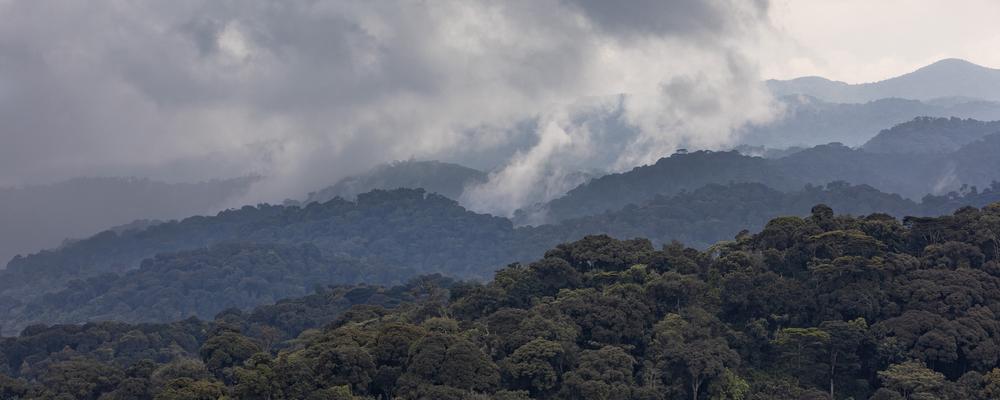
More about master in environmental science
After you have taken a bachelor's degree, you can apply for one of our four master's programs in environmental science. The master's programs extend over two years, which corresponds to 120 higher education credits. Most programs are also aimed at foreign students and the teaching is therefore given in English.
Environmental science is about the interaction between man and our nature. As an environmental scientist, you see the big picture and the effects our actions have on the surrounding environment. Everything we do creates an imprint!
As an environmental scientist, you help authorities and companies to work in a sustainable way. It can, for example, be about finding new materials or fuels, or developing a new structure. It can also be about cooperating and working for negotiations across national borders.
Among other things, you can work with natural resources, community planning, nature conservation, land and water management, forestry and agriculture, waste and recycling management, life cycle analyzes, environmental management and environmental impact assessment. You can also work as a consultant, either in your own company or at a consulting company.
Environmental science studies the threats to our common future on Earth, but also the opportunities human society has to tackle these challenges. As a student of the master’s programme in Environmental Science, you will gain in-depth knowledge and competence regarding all aspects of environmental problems (causes, emissions, impacts, and mitigation measures), and how those aspects interact. You will be prepared to work as an environmental expert, working towards a sustainable future.
The structure of the program
The program begins with a mandatory semester including four advanced environmental science courses, each worth 7.5 HEC:
Then, based on your background and self-interest, you can choose to specialize. For example, you can take one of the following courses at the advanced level:
You can also choose courses in applied environmental science:
The program ends with your degree project, which can be carried out in close collaboration with a research group or linked to a state or private organization.
The master’s programme in Atmosphere, Climate, and Ecosystems adds resources to the understanding of and solutions for the UN Sustainable Development Goals. It provides you with the opportunity to study the complex global system made up of the atmosphere, climate, and ecosystems, and the related global challenges. As a graduate of the programme, you will be prepared to enter society with broad knowledge in natural science and special competence in a specialized field of science, intermixed with global challenges.
The structure of the program
The program begins with four mandatory courses during the first semester:
In the second term of the first year, you choose a specialization in either atmospheric science, climatology, or ecosystems. Proposed courses within each specialization are listed below. You can also mix courses from more than profile.
Atmospheric Science:
Period 3: Energy and Environment: Processes, Efficiency, and Impacts (ES2417), 15 HEC
Period 4: Aerosols (KEM720), 15 HEC
Climatology:
Period 3, octil 1: Climate change history (GVN360), 7,5 HEC
Period 3, octil 2: Advanced Climate Data Analysis (GVN370), 7,5 HEC
Period 4: Earth Systems, Field Course, 15 HEC
Ecosystems:
Period 3: Plant ecophysiology in a global change perspective (BIO506), 15 HEC
Period 4: Plant ecology in a global change perspective (BIO503), 15 HEC
Year 2
In the final year, you do your degree project, which comprises 60 higher education credits (alternatively 45 higher education credits degree project + 15 elective higher education credits). The degree project gives you valuable experience in research, regardless of whether you do it within the university or in collaboration with a research-related company. We have good contacts with several such companies in the region.
A year-long research related thesis project, with the combination of atmosphere, climate, and ecosystems will set you apart in the future job market, both in research and environmental authorities. Our links to research-related companies (Ri.se and IVL for example) is beneficial to those pursuing work in the private sector. The majority of our students do an experimental thesis project, addressing a research question closely connected to a real research task of the group or principal investigator acting as supervisor. In most cases, students work as a member of the research groups.
During the master’s programme in Ecotoxicology you will obtain the skills necessary to identify problems related to the presence of toxic chemicals in the environment, develop appropriate problem-solving strategies and learn modern experimental techniques. You will also learn about the bigger societal context in which ecotoxicology operates. All of this will allow you to make a positive contribution to the work conducted at academia and industry alike, but also at governmental authorities and non-governmental organizations.
The structure of the program
The program is divided into three parts:
University of Gothenburg has access to two marine research stations, Kristineberg (in Fiskebäckskil) and Tjärnö (outside Strömstad).






